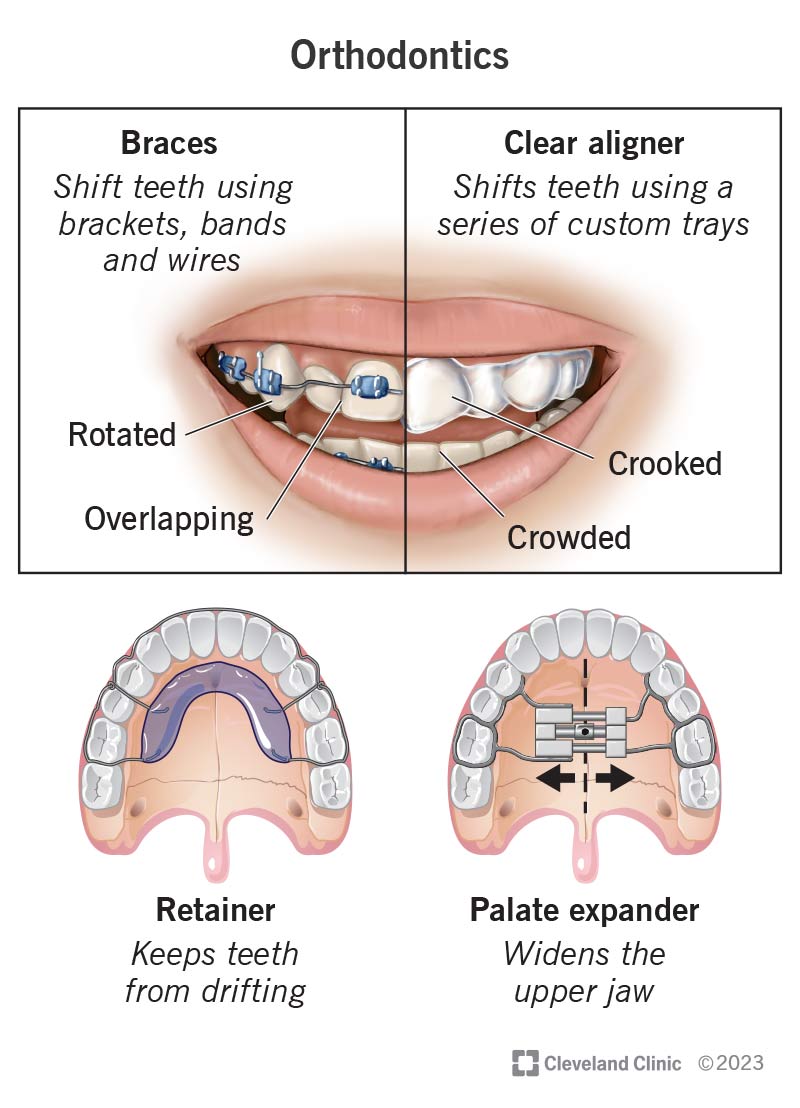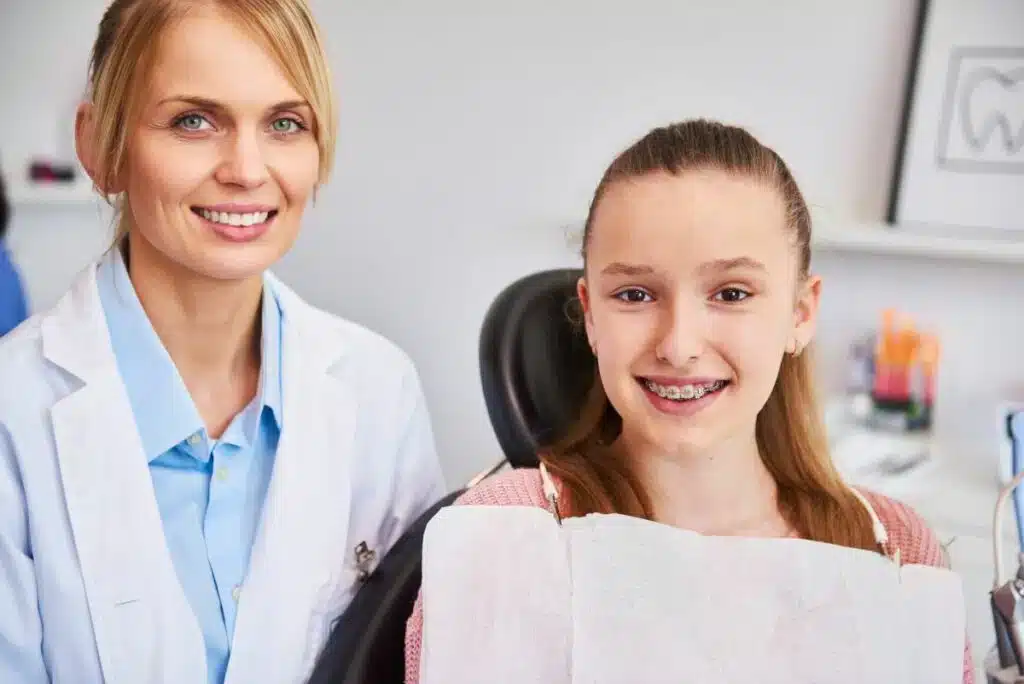The Facts About Causey Orthodontics Uncovered
The Facts About Causey Orthodontics Uncovered
Blog Article
Causey Orthodontics Can Be Fun For Everyone
Table of ContentsOur Causey Orthodontics StatementsThe 10-Minute Rule for Causey OrthodonticsWhat Does Causey Orthodontics Do?The Facts About Causey Orthodontics UncoveredRumored Buzz on Causey OrthodonticsGetting My Causey Orthodontics To WorkCausey Orthodontics Can Be Fun For Everyone
What is the difference between a dentist and an orthodontist? All dental experts, consisting of orthodontists, deal with the teeth, gums, jaw and nerves.
Orthodontists and dentists both give oral look after individuals. Orthodontists can operate in a dental workplace and provide the exact same treatments as various other dental professionals. So you can think of both doctors who deal with periodontal and teeth troubles. The primary difference is that coming to be an orthodontist calls for a particular specialized in treating the imbalance of the teeth and jaw.
7 Simple Techniques For Causey Orthodontics
An orthodontist is a dental expert that has undertaken training to focus on the diagnosis, avoidance and therapy of irregularities in the jaw and teeth. Their training includes correcting these existing conditions. They can also recognize potential issues in teeth positioning that might create when conditions are left untreated. Orthodontists can aid individuals of all ages.
This includes all the needed education and learning to come to be a basic dental professional. According to the American Student Dental Organization (ASDA), it means you will need to have either a Physician of Medicine in Dental Care (DMD) or a Physician of Dental Surgical Procedure (DDS). To put it simply, orthodontists require to finish dental college and after that get an orthodontics specialized education.
Some orthodontists also get their masters in craniofacial biology. These programs concentrate on two certain locations or self-controls: Dentofacial Orthopedics: This study focuses on directing teeth and jaw development.
Causey Orthodontics for Dummies

 These include apparatus such as dental braces, retainers and Invisalign. So, what does an orthodontist do, and what do they concentrate on? The total objective of an orthodontist is to improve a client's bite. Not every person is birthed with straight teeth, and an orthodontist will guarantee that patients get equally spaced straight teeth.
These include apparatus such as dental braces, retainers and Invisalign. So, what does an orthodontist do, and what do they concentrate on? The total objective of an orthodontist is to improve a client's bite. Not every person is birthed with straight teeth, and an orthodontist will guarantee that patients get equally spaced straight teeth.
Examine This Report on Causey Orthodontics
The American Association of Orthodontists advises your first check up by age 7. You'll need to see your orthodontist if you have an imbalance in your teeth, likewise known as malocclusion. If you discover irregular bite patterns, a somewhat askew jaw, or when your teeth are chock-full, you will likely require orthodontic therapy.
In enhancement, we provide adjustable therapy schedules, flexible repayment alternatives and an enjoyable, satisfying experience.
An orthodontist is a dental professional trained to diagnose, avoid, and deal with teeth and jaw irregularities. They correct existing problems and are trained to identify problems that might develop in the future. Orthodontists collaborate with individuals of all ages, from children to adults. People commonly associate a perfect smile with great wellness.
The Definitive Guide to Causey Orthodontics
Malocclusion, or misaligned teeth, can lead to dental issues, including dental caries, periodontal condition, and challenging or painful chewing. Yet not every person is birthed with straight teeth. If you have a bad bite or huge areas in between your teeth, you might want to consult a dental professional specializing in orthodontic treatment.
(Picture Credit History: DigitalVision/Getty Images) Orthodontists use dealt with and detachable dental devices, like dental braces, retainers, and bands, to transform the placement of teeth in your mouth. Orthodontic treatment is for oral problems, consisting of: Misaligned teethBite troubles, like an overbite or an underbiteCrowded teeth or teeth that are as well much apartJaw misalignmentThe objective of orthodontic therapy is to improve your bite.
Getting My Causey Orthodontics To Work

All orthodontists are dentists, but not all dental practitioners are orthodontists. Orthodontic residency programs supply intensive, focused direction for oral experts. They focus on 2 locations: How to effectively and safely relocate teeth Just how to correctly guide growth in the teeth, jaw, and faceOnce an orthodontist has finished training, they have the alternative to come to be board licensed.
Malocclusion leads to tooth congestion, a misshapen jaw, or irregular bite patterns. Malocclusion is generally treated with: Your orthodontist attaches metal, ceramic, or plastic square bonds to your teeth.
What Does Causey Orthodontics Mean?
If you have only small malocclusion, you might have the ability to make use of clear dental braces, called aligners, as opposed to standard braces. Some individuals need a headwear to aid relocate teeth into line with pressure from outside the mouth. After dental braces or aligners, you'll need to wear a retainer. A retainer is a customized gadget that maintains your teeth in location.
Report this page